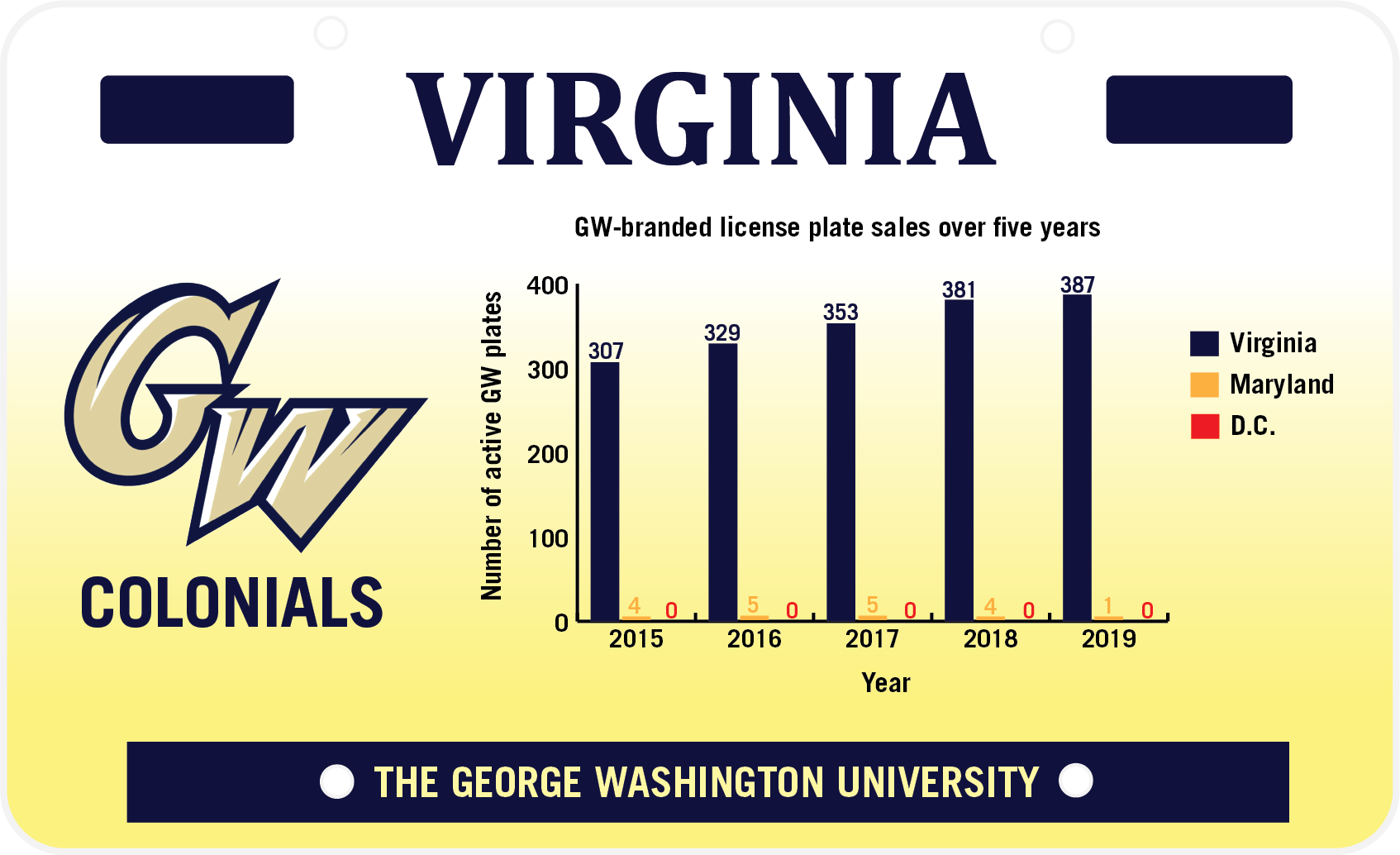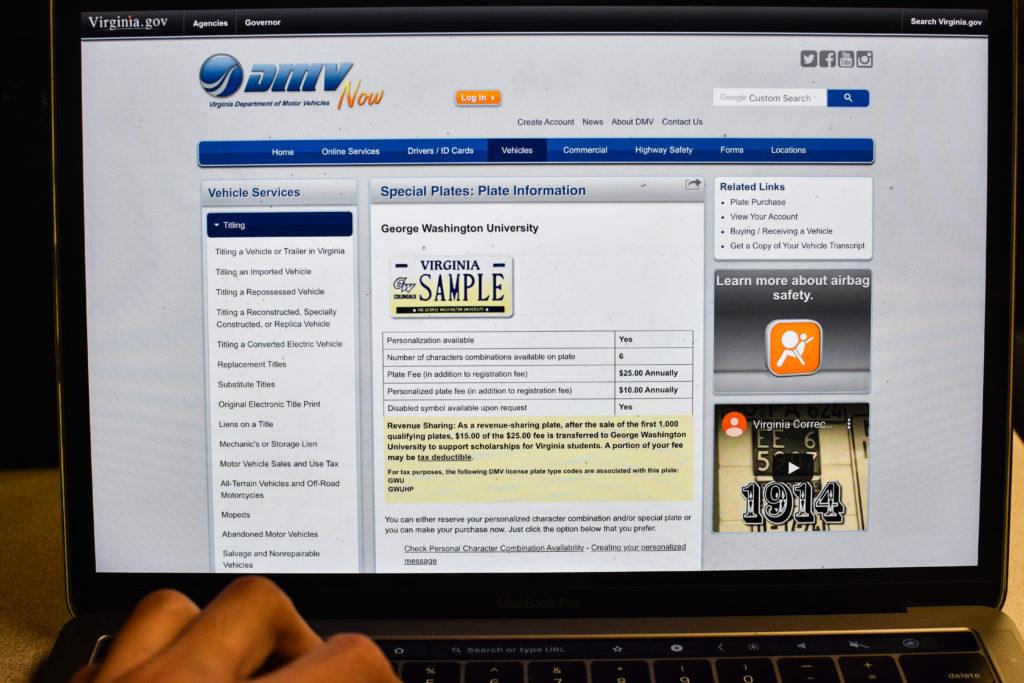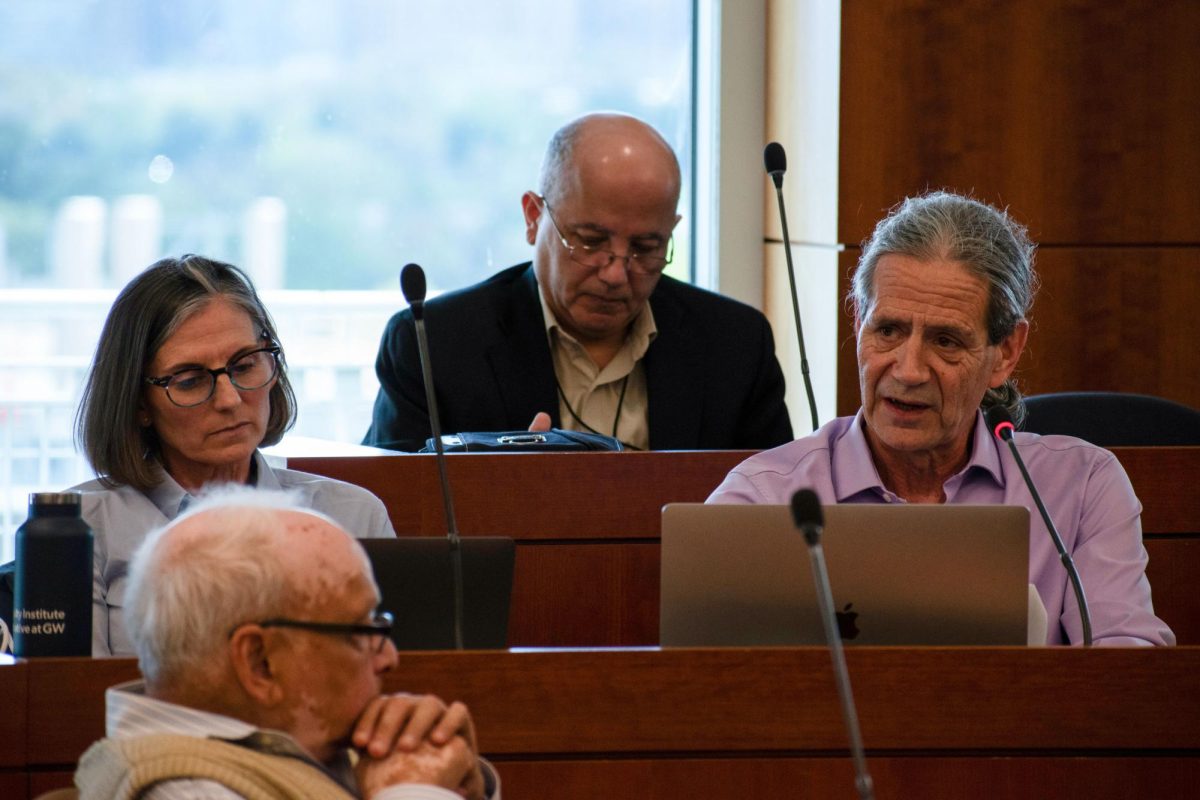The number of GW-branded license plates registered in the DMV area has increased by nearly 25 percent over the past five years.
Three hundred eighty-eight vehicles display license plates emblazoned with the GW logo – an increase of nearly 24.8 percent from 311 active plates in 2015 – according to spokespeople for the departments of motor vehicles in the District, Maryland and Virginia. The three jurisdictions are the only ones in which drivers can purchase GW-branded plates, and all but one of the license plates are registered to vehicles in Virginia.
A District Department of Motor Vehicles spokesperson said D.C. has not registered any active GW license plates in at least the past five years, and a Maryland Motor Vehicle Administration spokesperson said no more than five plates have been registered in any of the past five years.
In Virginia, the DMV donates $15 of the annual $25 license plate fee to the University after the sale of the first 1,000 “qualifying” plates to support scholarships for students from Virginia, according to the DMV’s website. But a Virginia DMV spokesperson said Virginia drivers have donated a total of $23,520 to GW over the past five years through purchases of GW-branded license plates, totaling $6,420 in the fiscal year 2019 alone.

Alyssa Ilaria | Graphics Editor
Maryland and D.C. do not appear to donate a portion of license plate sales to the University, according to their websites.
To purchase a GW-branded plate in Maryland and the District, drivers must pay a one-time fee of $25 and $100, respectively, according to the alumni website. D.C. drivers must also receive a signature of approval from the University to apply for the plate, which they can obtain by visiting the Office of Alumni Relations or mailing an application to the office, the website states.
Alumni relations experts said offering university-branded license plates can help alumni identify one another post-graduation, which boosts alumni pride in their alma mater and encourages philanthropic giving.
Lori Smith, the director of alumni relations at Shippensburg University in Pennsylvania, said university-branded license plates act as an “icebreaker” that can encourage alumni to form relationships with one another that they might not pursue otherwise. She said the plates are “conversation starters” that can lead to networking and job opportunities.
“It could be a casual conversation, and then one of the individuals happens to have a job opening and they’re like, ‘Shoot, I remember having a conversation with this alum, they’re in this field and they would be a great addition to the company,’” she said.
Smith added that branded license plates can help prospective students identify alumni of the universities they’re interested in attending. She said potential students who take notice of university-branded license plates can strike up conversations with alumni about their college experiences, which could be helpful to the students.
“We utilize alumni all the time to provide students success with job shadowing opportunities, internships, mentoring and even just bringing them back to volunteer on campus,” Smith said.
Jennifer Whitaker, the director of alumni and parent relations at the University of Evansville in Indiana, said universities sometimes kickstart license plate campaigns as part of larger fundraising efforts. She said her university encourages alums to purchase branded license plates through the school’s social media accounts and alumni magazine.
GW advertises the license plates on its Alumni Association’s website. Officials plan to launch the school’s next capital campaign in 2021 in conjunction with the University’s bicentennial anniversary.
“It is a way for them to donate to the University, which tells us that they have an affinity for us, and we can reach out to them in other ways,” Whitaker said.
Whitaker added that seeing a fellow alum’s university license plate can build “instant connections” among alumni and fosters a sense of school pride, which could push graduates to donate money to their alma mater.
“It helps identify people in the community – it can start off conversations just wherever they are,” she said.
GW notched the lowest alumni giving rate among all 12 of its peer institutions last fiscal year for the second consecutive year.
Andrew Wenthe, the vice president for external relations at Upper Iowa University, said bolstering alumni pride through university-branded items like license plates can encourage alumni to make philanthropic gifts.
“That’s the key to our business is understanding the alums’ affinity because if they have high affinity, then they’re likely more probable to give a gift to the university or support the university in some way,” Wenthe said.








